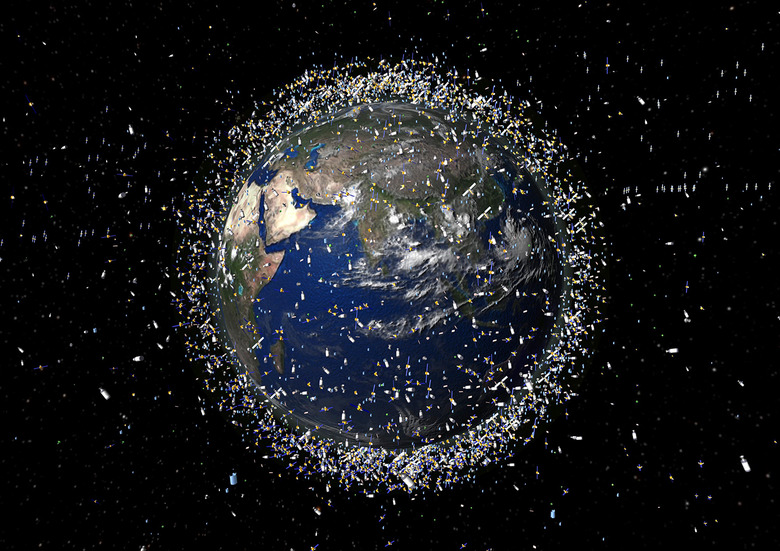Earth Is Surrounded By Garbage, And It Just Keeps Getting Worse
- Space junk is a problem that just won't go away, and it keeps getting worse.
- Debris orbiting Earth makes it difficult for space agencies and companies to launch missions, risking damage to spacecraft and humans in crewed missions.
- SpaceX's Starlink satellite horde is making things even worse, according to Rocket Lab CEO Peter Beck.
Space is huge. It's unfathomably large, really. There's just so much room out there you'd never be able to fill it. Unfortunately, the area immediately surrounding our home planet is much less pristine, and it's all our fault.
Scientists have been warning us about the problems that space junk poses for decades, but new rockets carrying fresh satellites are still launching at a breakneck pace. The steady stream of new hardware headed into Earth orbit has led to a pretty serious problem, according to Rocket Lab CEO Peter Beck, who told CNN that space junk is starting to affect how space agencies and startups plan and plot their launches.
The types of junk orbiting Earth can vary greatly in size. From defunct, burnt-out satellites to rocket components that were discarded during various missions, the trash includes a wide variety of items.
Busted satellites and other loose space trash will eventually fall back to Earth and be burned up in the friction of the atmosphere, but it's not happening fast enough. The rate at which new space trash is being created outpaces the rate at which the old junk is being destroyed. Many space agencies have toyed with ideas and plans for how to deal with this debris, including net systems and even harpoons for larger pieces of trash.
The other issue is that there are more active and operational satellites in Earth orbit than ever before. SpaceX, for example, has launched hundreds of its own tiny satellites over the past couple of years and the Starlink constellation is already causing problems for astronomers observing the cosmos. The same problem exists for space groups trying to launch rockets, as dodging these collections of satellites has become increasingly difficult.
The International Space Station, which is the only permanent place in space that humans have maintained a presence for years on end, has been forced to evade random pieces of space debris and avoid collisions that could potentially cause problems for the crew.
I do have to say that the recent comments from Rocket Lab CEO Peter Beck are a bit curious, as he seems to be criticizing space agencies and even SpaceX for their decisions to launch so many objects into space. Rocket Lab, of course, is working on its own rockets that... wait for it... will be used to deliver batches of satellites into space. So far, the company has launched 55 satellites.
In any case, the amount of space trash orbiting Earth really is a problem, and there's no clear solution at the moment. It's going to be interesting to see which countries and companies step up to develop new systems to clean up the area around Earth before it becomes nearly impossible to send new things into orbit and beyond.
